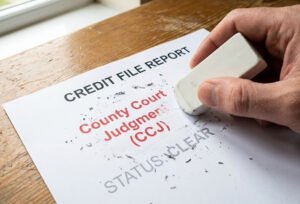With the cost-of-living increasing rents and rising interest rates impacting mortgages, it’s more important than ever that you know your rights and when you might be at risk of eviction as a property owner or renter
Having a place to live is one of life’s essentials. Whether you own your home or rent, knowing your property rights can help you be as prepared as possible if something goes wrong. This is especially important now, with the cost-of-living crisis increasing mortgage rates and rent prices. If you’re concerned that you might fall behind with your rent or mortgage payments, you could be at risk of eviction or repossession. But don’t panic; we’re here to explain how it all works and what you can do to get back on track before it’s too late.
Your rights as a homeowner
Whether you own your home alone or with a friend, partner, or family member, your name will usually appear on the title deed and any mortgage paperwork, as well as on the Land Registry. If you’re classed as a joint tenant, you and the other person will jointly own the property.
There are two main types of homeowners in the UK: freehold and leasehold.
If you’re a freeholder, your name will be on the deed in perpetuity as long as you make your mortgage payments and don’t choose to sell. The only time your ownership could come under threat is if you’ve fallen behind with payments on a loan that’s secured against your property. While there are quite a few steps they need to go through first, your mortgage lender could escalate your debt to the court and eventually enforce a compulsory purchase or repossession.
As a leaseholder, you’re effectively paying to rent a property from the freeholder for an extended period. Leases are generally last at least 21 years, but some can last up to 999 years. Once that term ends, if you don’t renew it, your property will revert to the freeholder.
How eviction works
When you own your own home, you’ll likely only face eviction proceedings if you have a mortgage on the property or you’ve taken out another type of loan secured against your home. In either case, if you find that you can’t make payments anymore and you fall into arrears, your home could be at risk.
While moving to repossess should be the lender’s last resort, it can happen, especially if you’ve consistently missed payments. If you’ve had a change of circumstances and you’re concerned you won’t be able to make your next mortgage payment, consider contacting your lender. No matter the reason why you’re at risk of missing a payment, you can explain the situation to the lender, and they might be happy to work with you to arrange a more affordable payment plan.
If you can’t come to an arrangement, the lender can start legal proceedings against you. To do this, they must first issue you with:
- A list of all the missed payments
- The total amount owed in missed payments
- The total outstanding on your mortgage
The court hearing is known as a possession hearing. A judge will hear arguments and weigh up the facts to help determine whether you can afford to keep your home. Once they’ve made a decision, they might issue you with one of two types of possession order:
- Possession Order – this means your home will be repossessed and you must leave it by the date in the order
- Suspended Possession Order – this lets you keep your home, but you must follow terms set out by the court and likely pay an additional amount on top of your regular payment to make up the arrears
If you don’t leave by the date on your possession order or fail to keep up your end of the bargain in a suspended possession order, the court can send in the bailiffs to evict you.
Once you have been evicted, your home will be sold to repay the debt. If the sold price is higher than the debt, you’ll get to keep the profit, but if it’s less, you’ll still owe the lender the difference.
Your rights as a renter
As a private renter, you should be protected from unfair eviction and unfair rent but that doesn’t mean your landlord can’t still evict you, if they follow the right process.
It all depends on what type of tenancy you have:
Assured shorthold tenancies (AST) are the most common type. This will usually apply if you’ve started renting privately after 15th January 1989. However, it can’t be an AST if your rent is more than £100,000 a year, the property is a holiday let, or your landlord is the local council.
Excluded tenancies are where you lodge with your landlord and share common areas like the kitchen or bathroom.
An assured tenancy is usually one that started between 15th January 1989 and 27th February 1997.
Regulated tenancies can apply to tenancies that started before 15th January 1989 and come with extra protections.
How eviction works
If you have an assured tenancy or an assured shorthold tenancy, the landlord can issue you with a Section 8 eviction notice if you’ve fallen behind with your rent payments. They must give you two weeks’ notice but can apply to the court to evict you with the support of bailiffs if you don’t leave on time.
With a shorthold tenancy, the landlord can also evict you without giving a reason, even if you’re up to date with your rent payments. This is known as a Section 21 notice, and they must give you at least two months to move out.
If you have a regulated tenancy, the landlord will need to present their case to the court before issuing you a Section 8. The judge will likely only approve your eviction if your rent is more than two months late (and you usually pay monthly) or eight weeks late (if you pay weekly). The decision they make should also be reasonable and proportional, which means they might refuse to allow the eviction, but require you to make up the missing payments by a certain date instead.
In the event of bailiffs being called in, they must give you two weeks’ notice. If the bailiffs work for the County Court, they shouldn’t visit you before 9am and after 5pm and if they are High Court Enforcement Officers, they won’t be on your doorstep before 6am or after 9pm.
You can ask them to provide identification and they shouldn’t use any violence or offensive language when they arrive. However, you should be ready to leave and ideally have removed all your belongings from the property. If you haven’t been able to move everything in time, the bailiffs cannot damage your goods and the landlord must keep them safe for a reasonable time, although they might charge you for storage and removal.
What can I do if I’m struggling to pay my rent or mortgage?
If you’re worried about falling behind with your rent or mortgage payments, you can take steps to get things under control before the situation escalates to a potential repossession or eviction:
- Speak to the lender or landlord
It’s worth getting in contact with your lender or landlord as soon as you start struggling. While you might be worried what they’ll think, it’s likely they’ll want to work with you to help you get back on track rather than start eviction proceedings or go through the hassle of finding a new tenant, especially if you’ve always paid on time in the past. They might be able to agree a new payment plan, give you a payment extension, or even reduce the amount you pay for a short time until you can afford to catch up.
- Revise your budget
Having a budget in place can help you understand exactly where your money is going and where you might be able to make cuts. It should be an evolving document that is updated each time your circumstances change. If you’re struggling to cope because your rent has increased or your mortgage interest rate has pushed up your monthly payment amount, take time to revise your budget based on this new expenditure. You might be able to find other places to cut back or understand how much extra cash you need to earn to cover the shortfall.
- Get debt advice
Getting support from an expert debt adviser can help you understand the different debt management solutions available and whether they might be right for your circumstances. Our friendly team will take time to listen to your situation with no judgement, explain the options, and help you get started if you choose to proceed with a solution. That way, you can start tackling your debts and hopefully avoid being faced with eviction.
Looking for support with your finances? Our team of experts is here to help. Give us a call on 0161 660 0411 or send a message here






